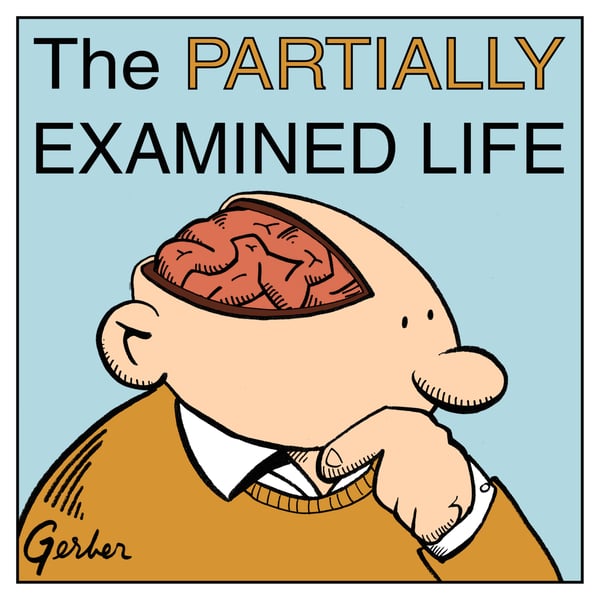Ep. 349: Rorty's Pluralistic Pragmatism (Part Two)
The Partially Examined Life Philosophy Podcast
Mark Linsenmayer
4.6 • 2.3K Ratings
🗓️ 9 September 2024
⏱️ 51 minutes
🧾️ Download transcript
Summary
Continuing on Richard Rorty's Pragmatism As Anti-Authoritarianism, ch. 1, "Pragmatism and Religion" and 2, "Pragmatism as Romantic Polytheism."
Rorty evaluates past pragmatists' approaches to religion, arguing contra James that it can't be "privatized," that democratic social goals involve shared rationality, which means that all of our beliefs are open to the judgment of our peers.
Get more at partiallyexaminedlife.com. Visit partiallyexaminedlife.com/support to get ad-free episodes and bonus content.
Sponsors: Apply for convenient term life insurance from Fabric by Gerber Life at meetfabric.com/PEL. Give online therapy a try at BetterHelp.com/partially and get 10% off your first month.
Transcript
Click on a timestamp to play from that location
| 0:00.0 | You're listening to the partially examined life episode 349 part two we've been discussing Richard Rorte's pragmatism as anti-authoritarianism, |
| 0:17.4 | specifically the first two essays pragmatism and religion and pragmatism as romantic polytheism. We are going to stop talking about the |
| 0:28.0 | controversial things that he says about knowledge and get to the things that we probably mostly agree about where he is analyzing what the various |
| 0:37.8 | pragmatists, mostly Dewey and James had to say about religion and how which ones he likes the best. |
| 0:45.0 | Yeah, so we're looking at section 2 on classical pragmatism. |
| 0:51.0 | So he goes briefly into some of the commonalities between the pragmatists, including this |
| 0:58.8 | naturalistic Darwinian view of things and the desire to save moral and religious ideals from the trends of the time |
| 1:08.7 | in Pyrrhicism and positivism but they have different philosophical concerns. |
| 1:14.3 | So Pierce, for instance, Royd sees as a Kantian, |
| 1:17.3 | interested in improving on Kant and more focused on math and science than the others. |
| 1:21.9 | James is more, I think, the most interested in religion |
| 1:26.8 | and is not a fan of Kant or Hegel. |
| 1:30.1 | Dewey, influenced by Hegel, quite anti-Contian, and then he, that's sort of the initial summary, |
| 1:37.4 | he gives of the three, and then he'll go into the three in detail, and ultimately he's going to tell us why he thinks Dewey. |
| 1:45.6 | When it comes to religion is the most interesting of the three. |
| 1:48.8 | Dewey does the job. |
| 1:50.6 | Do he does it. |
| 1:51.6 | He also briefly refers to Nietzsche being described as a German pragmatist, but that interestingly, you know, when you get rid of for Nietzsche monotheism or you get rid of this focusing on transcendental truth, then you turn away from, right? |
| 2:10.1 | It becomes some sort of emphasis on what was good about religion according to some of this is that it points you at something lofty. |
| 2:19.0 | It points you at something, right, even for James, the fundamental religious belief is going to be something like the |
| 2:26.4 | eternal things are the best things. |
| 2:29.0 | So the other worldly things that shooting for the heights, this is why Roydy describes his own position and that he sees in some of these other folks as a romantic pragmatism because it is an optimistic pragmatism that goes with this enlightenment idea of democracy as being the full |
... |
Please login to see the full transcript.
Disclaimer: The podcast and artwork embedded on this page are from Mark Linsenmayer, and are the property of its owner and not affiliated with or endorsed by Tapesearch.
Generated transcripts are the property of Mark Linsenmayer and are distributed freely under the Fair Use doctrine. Transcripts generated by Tapesearch are not guaranteed to be accurate.
Copyright © Tapesearch 2025.

